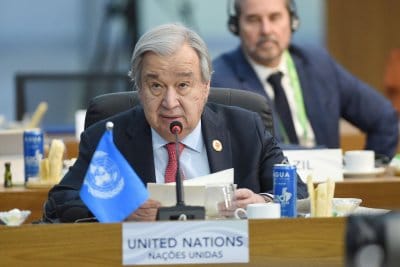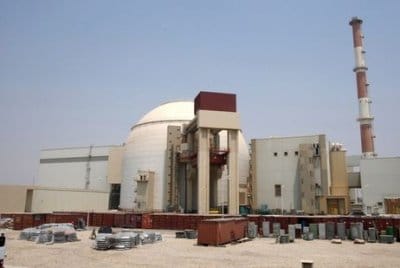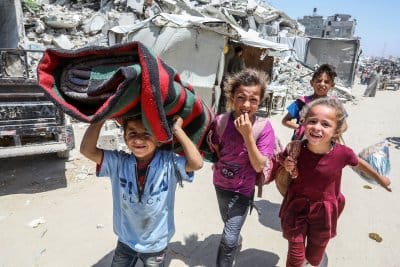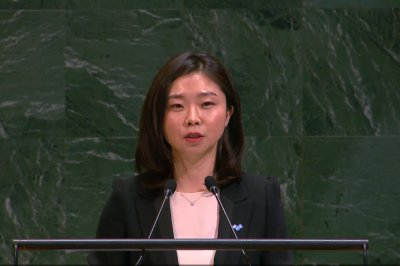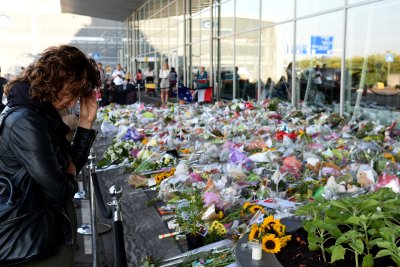U.N. nuclear inspectors depart Tehran after Iran ends cooperation
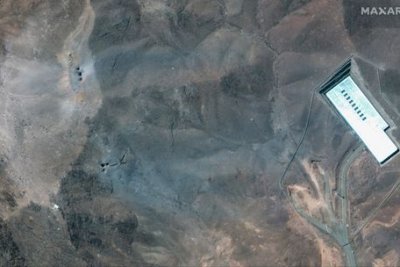
1 of 2 | A satellite image shows a view of craters and ash on a ridge at Iran’s Fordo underground uranium enrichment facility after U.S. airstrikes June 21. Satellite Image 2025 Maxar Technologies/EPA
July 4 (UPI) — U.N. nuclear inspectors on Friday departed from Iran two days after the Middle Eastern nation suspended cooperation with the program and weeks after the United States and Israel bombed nuclear sites.
Rafael Grossi, the inspector general of the International Atomic Energy Agency, had aimed to assess the uranium-enrichment facilities and see whether alleged nuclear bomb efforts had been set back.
IAEA hasn’t reported the inspectors findings.
They remained in the capital, Tehran, during the conflict between Israel and Iran.
“An IAEA team of inspectors today safely departed from Iran to return to the Agency headquarters in Vienna, after staying in Tehran throughout the recent military conflict,” the U.N. agency posted Friday on X.
“IAEA Director General rafaelmgrossi reiterated the crucial importance of the IAEA discussing with Iran modalities for resuming its indispensable monitoring and verification activities in Iran as soon as possible.”
On Wednesday, Iran’s President Masoud Pezeshkian signed legislation that halts cooperation with the agency, blocking oversight of Iran’s nuclear program.
Inspectors will not be allowed to visit nuclear sites without approval from Iran’s Supreme National Security Council.
Iranian lawmakers gave two conditions for resuming cooperation, according to state media. The safety of its nuclear program and scientists is secured, and an acknowledgment about its right under international law to enrich uranium.
The spokesperson for U.N. Secretary-General Antonio Guterres said the Iranian law was “obviously concerning.”
“I think the secretary-general has been very consistent in his call for Iran to cooperate with the IAEA, and, frankly, for all countries to work closely with the IAEA on nuclear issues,” Stephane Dujarric told reporters.
Iran has been critical of a resolution on June 12 by the IAEA that accused Iran of non-compliance with its nuclear obligations.
This was one day before Israel attacked.
Iran and the United States had been engaged in talks for a nuclear deal. The U.S. used B-2 bombers to send missiles deep underground.
“We are for diplomacy,” Iran’s deputy foreign minister, Majid Takht-Ravanchi, told NBC News on Thursday, adding the U.S. government needs “to convince us that they are not going to use military force while we are negotiating. That is an essential element for our leadership to be in a position to decide about the future round of talks.”
President Donald Trump, who doesn’t want Iran to be enriching uranium, said that the U.S. bombing of three Iranian nuclear sites “obliterated” the program.
Grossi earlier said that Iran’s stockpile of highly enriched uranium remains unaccounted for, and the program may have been delayed only a few months, and not years.
“It can be, you know, described in different ways, but it’s clear that what happened in particular in Fordo, Natanz, Isfahan, where Iran used to have and still has, to some degree, capabilities in terms of treatment, conversion and enrichment of uranium have been destroyed to an important degree,” Grossi said in a CBS News interview on Saturday. “Some is still standing. So there is, of course, an important setback in terms of those of those capabilities.”
Iran has contended its nuclear program is for peaceful purposes but the agency reported in May that Iran stockpiled about 900 pounds of uranium enriched to 60% purity, enough to build nine bomb. That’s up 50% since February.
In December, the IAEA said Iran was rapidly moving closer to the 90% threshold needed for weapons-grade material.
In 2018, Trump unilaterally exited the Joint Comprehensive Plan of Action and reimposed harsh sanctions during his first term in office.
In 2015, Iran reached a deal with the United States, Britain, Germany, France, Russia, China and the European Union.

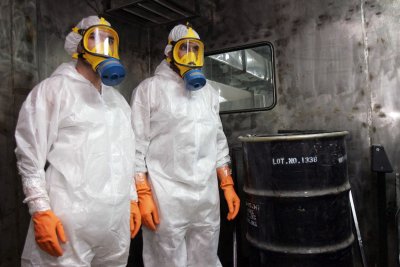

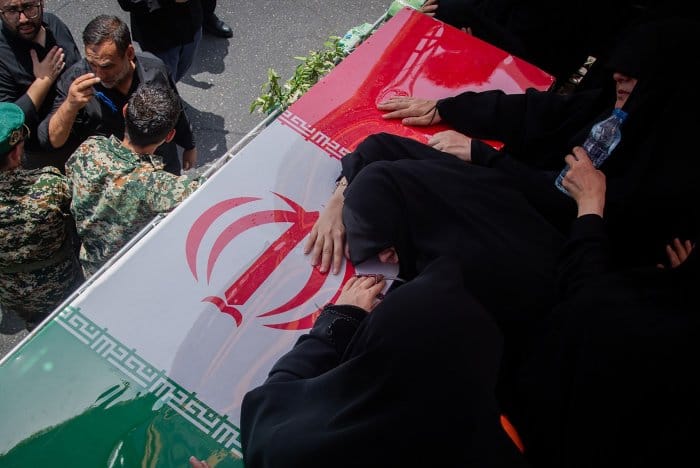


 The United Nations Population Fund, or UNFPA, announced Tuesday that while some may worry about a population decline and how it could impact a country’s survival, the bigger crisis is that people are not having children
The United Nations Population Fund, or UNFPA, announced Tuesday that while some may worry about a population decline and how it could impact a country’s survival, the bigger crisis is that people are not having children